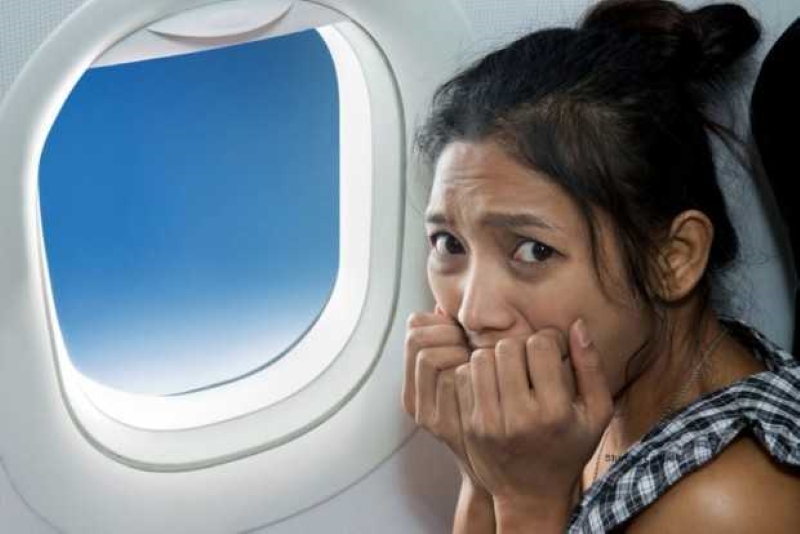
Fear of flying (aero-phobia-avio-phobia): what causes it and what it is caused by
Fear of flying (a.k.a. aerophobia, or aviophobia) can hinder job promotions, as well as trips to visit relatives or friends, or coveted holidays
It has been calculated that the percentage of risk of our possible death due to a plane crash is very low, and therefore many fears are not justified at all.
People die far more often from car accidents than from plane crashes, yet hardly anyone fears travelling by car, while there are so many who suffer at the mere thought of boarding a plane and are paralysed by the fear of flying.
Fear of flying: no form of control over one’s destiny
This situation is particularly anxiety-provoking for those who feel they are living in a condition in which they cannot exercise any form of control.
The aircraft is experienced as an enemy, adverse and antagonistic reality, something foreign from which one must defend oneself.
It is important to consider that many of those who are afraid of flying, and thus suffer from aerophobia, are not afraid that something will happen to the aircraft, but are claustrophobic subjects, who fear, above all, having to stand still in a relatively small space with sealed windows, or agoraphobics, who fear not being able to leave the aircraft for a few hours and not being able to be rescued quickly in case they feel ill or have a panic attack or, in any case, feel ill in front of many other people, with the inevitable bad impression.
Fear of flying, therefore, is often secondary to other forms of anxiety and the airplane is just one of the many places where these people are particularly agitated
For those who suffer from a real fear of flying, or aerophobia, all phases of air travel can be experienced with fear, although there are some that are particularly dreaded, such as take-off and landing, or certain weather conditions that most frequently arouse anxiety, first and foremost turbulence, followed by thunderstorms, fog and strong wind.
The intensity of the fear of flying ranges from simple, more or less slight discomfort felt before or during the flight, to absolute terror that prevents the subject from facing the flight or, if this is impossible, causes very serious discomfort, up to acute anxiety crises and panic.
Fear of flying can also be felt by those who have never flown, blocking them from the simple decision to take the plane.
It is therefore a pronounced areophobia, which completely prevents the subject from exposing himself to what he fears.
Fear of flying can be effectively treated with targeted psychotherapy with a cognitive-behavioural orientation
Generally in a short time and with the use of targeted strategies, many of them by means of guided imagination (given the impossibility of flying often and with the therapist), the person succeeds in acquiring specific skills to manage the state of anxiety, so that the aerophobia (or aviophobia) is no longer paralysing and/or, in time, completely extinguished.
Read Also
Emergency Live Even More…Live: Download The New Free App Of Your Newspaper For IOS And Android
Amaxophobia, How To Overcome The Fear Of Driving?
Hesitation When Driving: We Talk About Amaxophobia, The Fear Of Driving
Emotional Abuse, Gaslighting: What It Is And How To Stop It
Facebook, Social Media Addiction And Narcissistic Personality Traits
Social And Exclusion Phobia: What Is FOMO (Fear Of Missing Out)?
Gaslighting: What Is It And How To Recognise It?
Nomophobia, An Unrecognised Mental Disorder: Smartphone Addiction
The Panic Attack And Its Characteristics
Psychosis Is Not Psychopathy: Differences In Symptoms, Diagnosis And Treatment
Metropolitan Police Launches A Video Campaign To Raise Awareness Of Domestic Abuse
Amaxophobia, The Fear Of Driving
Metropolitan Police Launches A Video Campaign To Raise Awareness Of Domestic Abuse
World Women’s Day Must Face Some Disturbing Reality. First Of All, Sexual Abuse In Pacific Regions
Child Abuse And Maltreatment: How To Diagnose, How To Intervene
Child Abuse: What It Is, How To Recognise It And How To Intervene. Overview Of Child Maltreatment
Does Your Child Suffer From Autism? The First Signs To Understand Him And How To Deal With Him
Rescuer Safety: Rates Of PTSD (Post-Traumatic Stress Disorder) In Firefighters
PTSD Alone Didn’t Increase Heart Disease Risk In Veterans With Post-Traumatic Stress Disorder
Post-Traumatic Stress Disorder: Definition, Symptoms, Diagnosis And Treatment
PTSD: First responders find themselves into Daniel artworks
Dealing With PTSD After A Terroristic Attack: How To Treat A Post Traumatic Stress Disorder?
Surviving death – A doctor revived after attempting suicide
Higher risk of stroke for veterans with mental health disorders
Stress And Sympathy: What Link?
Pathological Anxiety And Panic Attacks: A Common Disorder
Panic Attack Patient: How To Manage Panic Attacks?
Panic Attack: What It Is And What The Symptoms Are
Rescuing A Patient With Mental Health Problems: The ALGEE Protocol
Eating Disorders: The Correlation Between Stress And Obesity
Can Stress Cause A Peptic Ulcer?
The Importance Of Supervision For Social And Health Workers
Stress Factors For The Emergency Nursing Team And Coping Strategies
Italy, The Socio-Cultural Importance Of Voluntary Health And Social Work
Anxiety, When Does A Normal Reaction To Stress Become Pathological?
Physical And Mental Health: What Are Stress-Related Problems?
Narcissistic Personality Disorder: Identifying, Diagnosing And Treating A Narcissist


